They say only death and taxes are certain: the folks living in 10 countries with the highest tax rates in the world know all about that. Taxes are the backbone of every country’s social policy, but they can be even more, especially in undeveloped countries with otherwise weak economies. This is where taxes amount to a large percentage of country’s total available funds. Some countries have higher tax rates than others, thus procuring more funds for various government services and projects, but higher taxes don’t necessarily have to yield better results. Lower taxes can and usually do attract various potent economic partners which find it more economical to pay their taxes there than in their native countries. Here’s a list of 10 countries with the lowest tax rates for the rich which should clarify which of world’s countries are most profitable for establishing businesses – tax-wise.
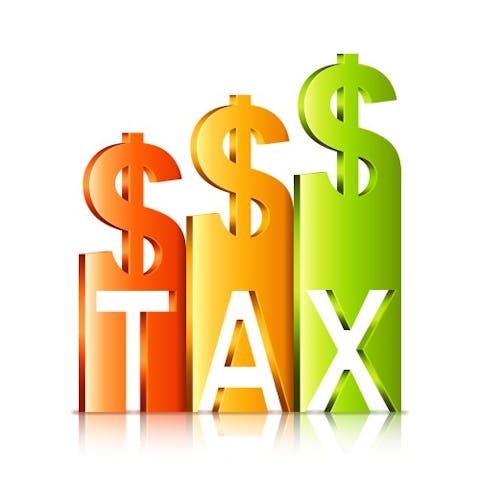
timurockart/Shutterstock.com
Taxes come from several sources, and we’ll use both personal and corporate tax rates, together with VAT, GST and sales tax rates in order to present you the countries which will take the largest chunk of your income. We’ll find an average percentage for highest and lowest personal and corporate tax rates, and then pull out the average with VAT, GST and sales tax rates for the final figure.
But first, let’s explain what each one of these taxes means. Personal taxes are government taxes aimed at individuals. If you have a job with a steady income, you’ll pay a certain tax (a portion of that income) which will be calculated based on your personal gain. The more you earn – the bigger the tax, usually. Corporate or company taxes follow a similar pattern but are imposed on companies. They also have their minimal and maximum values. Finally, VAT, GST and sales tax rates represent taxes on goods and services. VAT (value-added tax) or GST (general sales tax) are taxes that end-users (buyers) pay for purchased services, products and materials. This is a tax which only affects the buyer and is generally a fixed percentage which might differ depending on the type of product. For the purpose of this article, we only used standard rates and disregarded all special ones. Sales tax, unlike VAT or GST, doesn’t apply to all goods and largely varies depending on their type. Furthermore, sales tax is imposed on retail sales at the moment of purchase, thus also only affecting the final consumers. VAT or GST also affects the end-users, as we have seen, but unlike sales tax, it is imposed on each and every stage of the supply chain, thus adding value along the way to the retailers. We have found the info on Trading Economics and EY and then compiled the list of 10 countries with the highest tax rates in the world in an above-described manner.
10. Austria
Combined personal, corporate, VAT, GST and sales tax average: 36.66%
Alpine country with rich history also has strong and rich economy despite only having around 8.5 million inhabitants. In terms of GDP per capita, Austrian economy is on the verge of entering the list of top ten countries. Personal income tax is always 50 percent, regardless of high a salary, while corporate taxes vary between 25 and 55 percents. When 20 percent VAT enters the fray, Austrian combined tax average amounts to 36.66 percents.

Alex Poison/Shutterstock.com
9. Italy
Combined personal, corporate, VAT, GST and sales tax average: 37.28%
Italy is both Mediterranean and Alpine country which occupies the Apennine Peninsula. More than 60 million people call ancient Rome’s center provinces home. The Italian economy is an eighth largest economy in the world by nominal GDP and that allows its government to get away with high taxes. Personal income taxes in the birthplace of the Renaissance range from 44.1 to 51 percent while corporate taxes have slightly wider range, between 31.4 and 53.2 percents. With VAT being 22%, average tax rates in Italy are 37.28 percents.
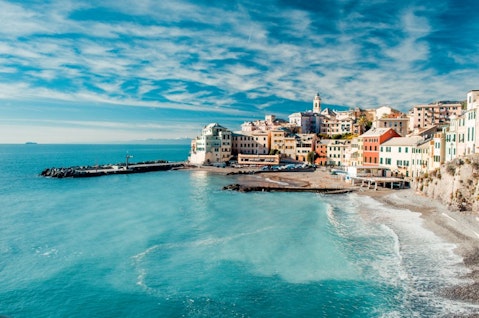
Alexander Tihonov/Shutterstock.com
8. Germany
Combined personal, corporate, VAT, GST and sales tax average: 37.58%
Europe’s number one economy rates as fourth in the world by nominal GDP after those of the USA, China, and Japan. With more than 81 million of pragmatic, precise and hard-working people calling Germany home, it’s no wonder the country makes such outstanding results. Personal income taxes vary between 44.3 and 57 percents while companies have to give to the government between 29.4 and 56.8 percents of their income. VAT of 19% is among lowest among European developed countries and all taxes ultimately average at 37.58 percents.

7. The Netherlands
Combined personal, corporate, VAT, GST and sales tax average: 37.83%
Holland is in top 20 countries in the world no matter how you look at the parameters – either by nominal GDP or by GDP per capita. This is a great result for a country with just 17 million inhabitants. One of the main reasons for the high standard of living in the Netherlands is the corporate tax which span between 25 and 48 percents. The personal income taxes are even higher and range between 52 and 60 percent. VAT of 21% also plays an important role in country’s tax income which averages 37.83 percents when all three categories are considered.

6. France
Combined personal, corporate, VAT, GST and sales tax average: 38.12%
Second largest European country by land size (not counting Russia) rates third overall in Europe by nominal GDP rates. 66 million people earn France the third largest European country by population title as well, but only if, yet again, Russia doesn’t count. French companies have to pay between 33.3 and 50 percent in taxes while personal income tax ranges between 45.8 and 59.6 percents. With VAT a nice, round 20% figure, overall average taxes in France are 38.12 percents.

beboy/Shutterstock.com
5. Chad
Combined personal, corporate, VAT, GST and sales tax average: 39.33%
Chad is the only African and non-European country (for that matter) on our list of 10 countries with the highest tax rates in the world. Almost 11 million people live in Chad which is fifth largest African country. Chad’s economy doesn’t rate nearly as high as those of European countries from this list, but country’s taxes certainly manage to stand toe to toe with that of European countries. VAT is 18% which might be on par with Europe, but is still rather high for Africa. Same goes for personal income taxes which are among highest in the world – 60 percent in both minimal and maximum cases. Corporate taxes are also nicely rounded – 40 percent no matter how much a company earns and the average of 39.33 percents doesn’t come as a surprise considering all of the above.

4. Belgium
Combined personal, corporate, VAT, GST and sales tax average: 39.55%
We return back to Europe. Belgium might not be in top 20 economies of the world, but it isn’t that far off as well. With slightly more than 11 million inhabitants, Belgium is in the upper half of the list of world’s countries by population. Belgium’s taxes, however, are among highest in the world, especially personal income one which ranges between 53.7 and 60.6 percents. Corporate taxes sit between 33 and 48 percents and VAT amounts to 21%. Finally, the average of all three categories comes to a total of 39.55 percents.

3. Finland
Combined personal, corporate, VAT, GST and sales tax average: 40.17%
Not counting Chad, Finland has the weakest economy (by nominal GDP) of all countries on the list. That’s mostly due to the fact that country only has 5.5 million inhabitants. However, this doesn’t mean that Finns have a lower quality of life compared to France, Germany or the UK, for instance. On the contrary, all Scandinavian countries are at least on par with other western European economies. Maximum percentage of both corporate and personal income tax in Finland is among highest in the world. The corporate tax ranges from 20 to 61.8 percents while personal income taxes vary between 49 and 62.2 percents. VAT is high as well with 24% and all these together make a total average of 40.17 percents.
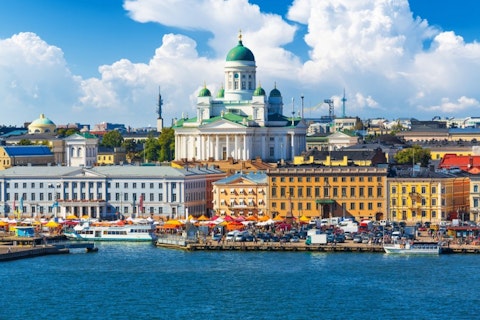
Oleksiy Mark/Shutterstock.com
2. Denmark
Combined personal, corporate, VAT, GST and sales tax average: 40.8%
Denmark might have only slightly more than 5.5 million inhabitants, but this Scandinavian country is among those with highest per capita income in the world. Danish personal income taxes are highest on the list, between 55.4 and 65.9 percents. Corporate taxes are high too, ranging between 23.5 and 50 percent, and VAT is highest on the list as well alongside that of the number one country from the list which comes up shortly. With VAT being 25%, total average amounts to 40.8 percents.
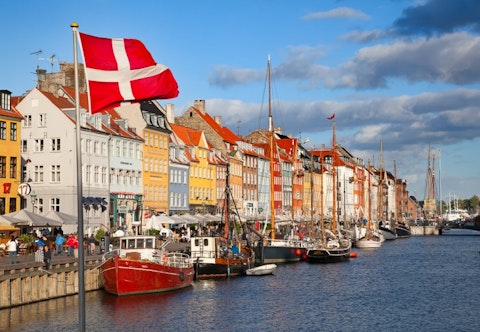
Fedor Selivanov/Shutterstock.com
1. Sweden
Combined personal, corporate, VAT, GST and sales tax average: 40.83%
Number one spot on our list of 10 countries with the highest tax rates in the world belongs to yet another Scandinavian country – Sweden. Compared to other Scandinavian countries, Sweden has a large population which is just shy of 10 million. The personal income tax is between 51.5 and 61.4 percents and corporate taxes are between 22 and 60.1 percent. VAT is the same as in Denmark – 25%, and the average is 40.83 percents.
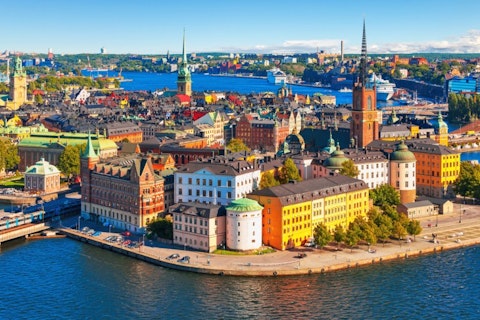
Oleksiy Mark/Shutterstock
Some countries didn’t make the list thanks to low VAT or GST taxes, like Japan, for instance, and some were just a tad bit short, like Ivory Coast, Portugal and Norway. When all is taken into account, the end-result was to be expected with European economies simply dominating this list. European economies that have made the list are immensely strong, and it’s partly thanks to high taxes that companies have to pay – both for their own income and for the income of their employees.





